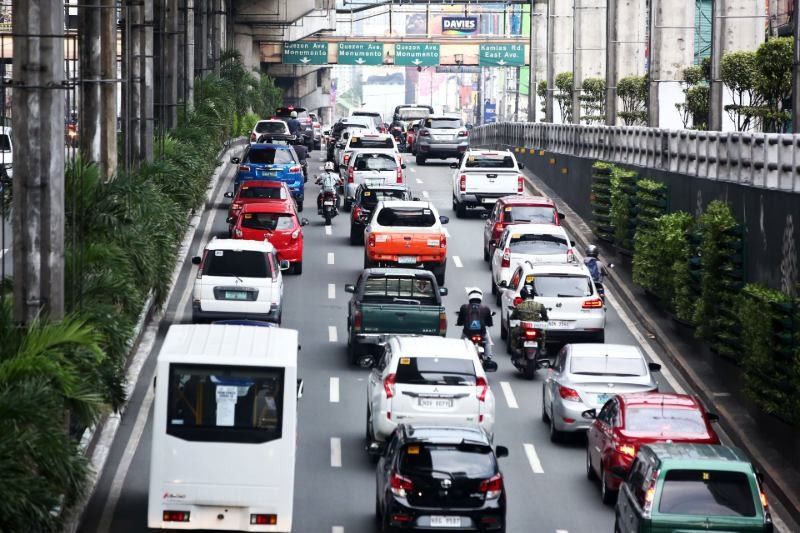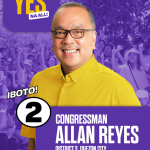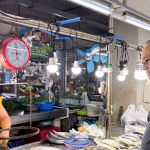- allanreyes
In August 2019, Congressman Allan S. Reyes filed House Bill 3125, also known as The Magna Carta of Commuters, in the House of Representatives. This bill seeks to define and protect the rights of commuters, ensuring safe, efficient, and dignified transportation across the country.

The filing of this bill came at a time when transport congestion was worsening in both urban and rural areas, highlighting the need for better commuter protection. It was introduced following the earlier filing of Senate Bill No. 775, or the Dignity in Commuting Act, by Sen. Francis Pangilinan. Together, these legislative efforts emphasized the urgent need for mobility reform to address the growing struggles of the commuting public.
Even though this initiative was introduced in August 2019, the issues surrounding commuter welfare remain highly relevant today, making the provisions of this bill more important than ever.
Watch: Lawmaker: Interconnectivity is key in resolving Manila's traffic problem | Headstart
To understand how Congressman Allan S. Reyes is advocating for commuter rights, watch this in-depth discussion on the Magna Carta of Commuters:
- Wastewater treatment facility for proper sanitation
- Cold storage to maintain food freshness
- Elevator for PWDs to ensure accessibility
- Car park facilities for convenience
This project is a testament to sustainable urban development, led by Congressman Allan S. Reyes, ensuring that the people of District 3 have access to a high-quality public market.
The Importance of Mobility in Economic Growth
In his bill, Congressman Allan S. Reyes highlighted the critical role of mobility in reducing economic inequality and improving quality of life.
“Improving mobility propels economic growth and reduces inequality,” Reyes stated.
However, he noted that millions of Filipinos continue to suffer from poor public transport systems, which disproportionately affect:
- The young and elderly
- Women and working-class individuals
- Persons with disabilities (PWDs)
- Low-income communities
These vulnerable groups rely heavily on public transportation and active transport options, such as walking and cycling. Without safe, efficient, and affordable transport systems, they remain at a disadvantage in education, employment, and daily activities.
Key Provisions of House Bill 3125: The Magna Carta of Commuters
The Magna Carta of Commuters lays out clear government responsibilities to improve commuter experience and prioritize public transport.
Creation of an Office of Commuter Affairs
A major component of the bill is the establishment of an Office of Commuter Affairs under the Department of Transportation (DOTr). This office will:
- Coordinate with government agencies on policies affecting road, air, and maritime transportation.
- Operate commuter help desks to assist the riding public.
- Launch education programs on commuter rights.
- Provide legal assistance for commuters experiencing transport-related issues.
With The Market at Project 4 fully operational, vendors and shoppers can now experience the best and most modern palengke Quezon City has to offer!
Prioritization of Public Transport Over Private Vehicles
To ensure efficient use of road space, the government must:
- Give public transport priority in traffic signal operations and road space allocation.
- Ensure that every town and municipality has an integrated and interconnected network of sidewalks, roads, and bicycle lanes.
- Require that public transport stations be available within 500 meters of any residence or major activity center.
- Mandate that stations be located at intervals of 300 meters for commuter convenience.
Mandatory Pedestrian and Cycling Infrastructure
Recognizing the importance of walkable cities, the bill mandates that:
- All road networks (except expressways and toll roads) must feature dedicated pedestrian walking paths of at least 2.5 meters in each direction.
- Bicycle racks must be installed in public and commercial buildings, accommodating at least 10% of anticipated users.
These provisions aim to encourage non-motorized transport, reduce traffic congestion, and create a healthier, more sustainable urban environment.
Ensuring Safe, Convenient, and Affordable Public Transport
House Bill 3125 also mandates that the government must actively monitor public transport availability and develop programs to meet mobility needs. This includes:
- Ensuring the affordability of fares for low-income commuters.
- Investing in sustainable transport options to reduce reliance on private vehicles.
- Enforcing safety standards to prevent road accidents and improve commuter well-being.
Penalties for Non-Compliance
To guarantee the law’s effective implementation, strict penalties are proposed for violators. Under House Bill 3125:
- Individuals or government agencies that fail to comply may face fines ranging from ₱200,000 to ₱500,000.
- Institutions that neglect public transport infrastructure requirements could also face legal repercussions.
These penalties aim to ensure accountability and push for real, tangible improvements in the country’s transport systems.
A Step Toward a More Inclusive and Efficient Transport System
By filing the Magna Carta of Commuters, Congressman Allan S. Reyes underscored the importance of public transport accessibility in ensuring economic mobility and quality of life. The bill sought to address long-standing issues that have burdened commuters for decades, offering a comprehensive and legally binding framework for mobility rights.
Although this bill was filed in August 2019, the challenges faced by commuters remain a pressing concern today. If similar legislation is enacted, it could transform the daily commute for millions of Filipinos, making public transport safer, more reliable, and more inclusive.
A Call to Action
The passage of a bill like the Magna Carta of Commuters is crucial for improving the Philippines’ transport infrastructure.
Support commuter rights. Advocate for policies that prioritize public transport and ensure dignified mobility for all.
References:
#YESnaALL | #YESerbisyo | Sama-Samang Asenso, Walang Kampo-Kampo!



